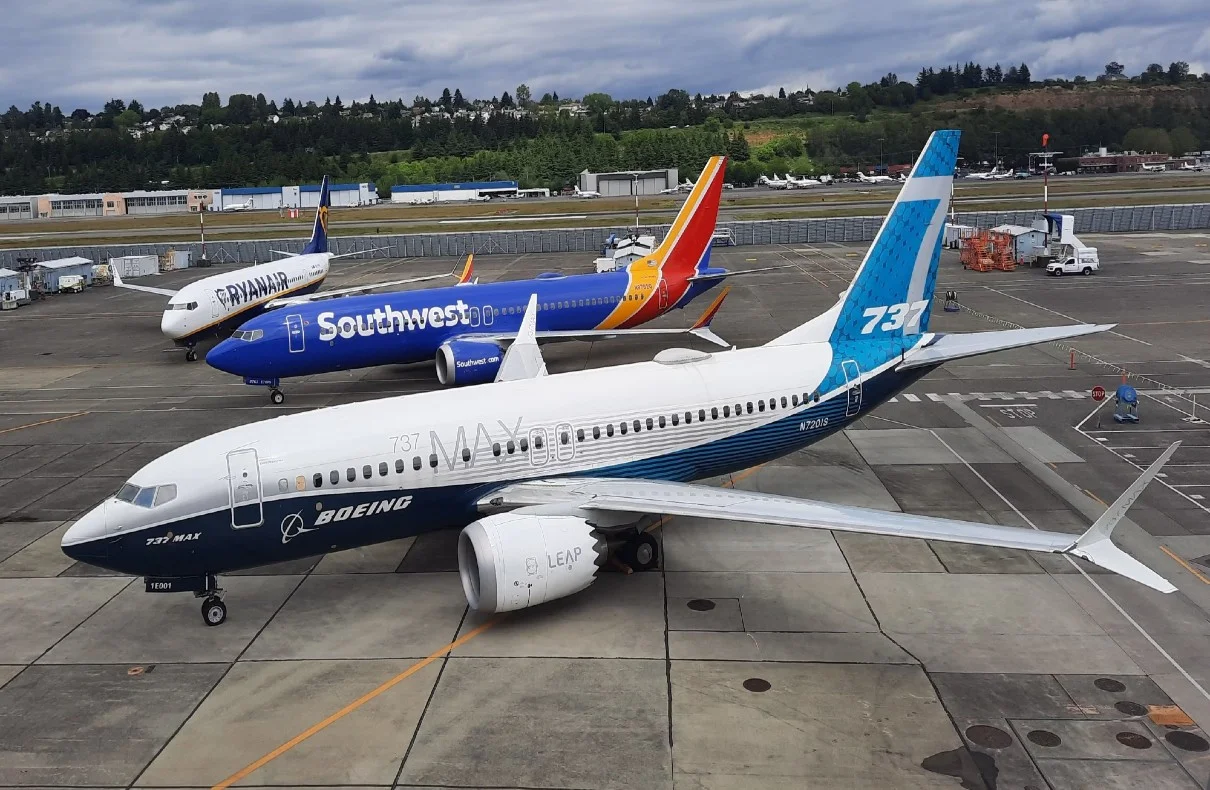
Boeing, the renowned aircraft manufacturer, has taken decisive action to address quality concerns by ousting the head of its 737 MAX program. This move comes in the wake of a series of incidents that have raised doubts about the manufacturing standards and safety of Boeing’s flagship model.
The decision to replace the head of the 737 MAX program was prompted by a frightening mid-flight incident involving a 737 Max 9 aircraft last month. During the flight, a door plug blew out while the plane was nearly 16,000 feet above Oregon. This incident raised serious concerns about the manufacturing quality and safety of Boeing’s aircraft.
A preliminary investigation revealed that the door panel was missing four crucial bolts. These bolts had been removed during repair work at Boeing’s Renton facility but were not reinstalled, leading to the catastrophic failure of the door plug. This incident served as a wake-up call for Boeing, necessitating immediate action to address the underlying issues.
In response to the quality concerns and the need for improved oversight, Boeing’s Commercial Airplanes CEO, Stan Deal, announced a broad leadership shake-up. One of the key changes involved the departure of Ed Clark, a veteran with nearly 18 years of service at Boeing. Clark had been overseeing both the production of the 737 MAX and the Renton factory.
Apple Upcoming Spring Event: A Comprehensive Overview
Stan Deal expressed his gratitude for Ed Clark’s significant contributions but acknowledged the need for a fresh perspective and enhanced focus on quality control. Katie Ringgold was appointed as Clark’s successor, taking on the role of vice president and general manager of the 737 program and the Renton factory.
To reinforce its commitment to delivering aircraft that meet or exceed all quality and safety requirements, Boeing introduced a new senior position overseeing quality control. Elizabeth Lund, a seasoned engineering and operations leader, was appointed as senior vice president for quality at Boeing Commercial Airplanes. In her new role, Lund will have companywide oversight of quality measures and will chair the quality operations council.
The creation of this position signifies Boeing’s determination to enhance its quality control efforts and prevent any future lapses. By centralizing the responsibility for quality, Boeing aims to instill a culture of meticulousness and ensure that every airplane it delivers meets the highest standards.
The incidents involving the 737 MAX have attracted significant regulatory scrutiny. U.S. regulators dispatched inspection teams to Boeing’s facilities to review quality controls, as well as those of the supplier responsible for manufacturing the fuselage of the 737 MAX. The Federal Aviation Administration (FAA) has imposed restrictions on Boeing, prohibiting the company from increasing production rates for the 737 MAX until it demonstrates adequate control over the quality of its work.
Boeing’s management shake-up and renewed focus on quality control are crucial steps towards rebuilding trust with regulators, airlines, and the public. The company’s commitment to safety, quality, and integrity will be closely monitored as it works to rectify the issues that have plagued the 737 MAX program.
The fallout from the 737 MAX incidents has taken a toll on Boeing’s reputation and financial performance. The stock price has plummeted, experiencing a 23% decline this year, making it the worst performer among the 30-member Dow Jones industrial average. Rebuilding trust and restoring confidence in the safety and reliability of the 737 MAX will be vital for Boeing’s future success.
Nigel Lythgoe Controversy: Analyzing the Sexual Assault Allegations from Paula Abdul
The incidents surrounding the 737 MAX program have served as a wake-up call for Boeing and the aviation industry as a whole. They highlight the importance of robust quality control processes and the need for constant vigilance to ensure the safety of passengers and crew.
Boeing’s response to these incidents, including the leadership shake-up and the appointment of a senior position dedicated to quality control, demonstrates a commitment to addressing the underlying issues and preventing similar incidents from occurring in the future. As the company works towards implementing these changes, it will be closely monitored by regulators, airlines, and the public.
The decision to oust the head of Boeing’s 737 MAX program and the subsequent leadership shake-up reflect the company’s determination to address quality concerns and reinforce its commitment to safety and excellence. By appointing new leadership and creating a senior position focused on quality control, Boeing aims to restore trust, rebuild its reputation, and ensure that every aircraft it delivers meets the highest quality and safety standards.
The incidents involving the 737 MAX program have highlighted the critical importance of rigorous quality control processes in the aviation industry. As Boeing continues its efforts to rectify the issues and implement enhanced quality measures, the industry and the public will be closely watching its progress. The ultimate goal is to ensure the safety and confidence of passengers and maintain Boeing’s position as a leader in the global aviation industry.
